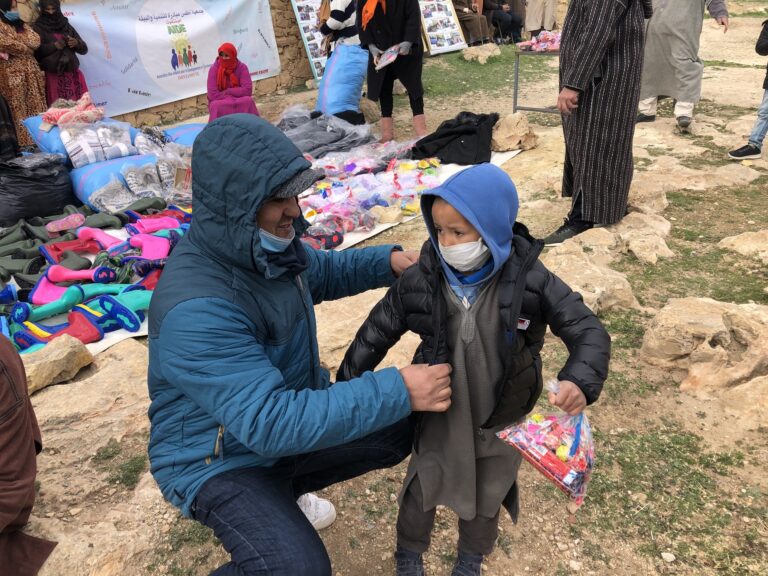
Eid ul-Fitr / Kiswat Eid
Eid ul-Fitr is a day of joy and happiness when everyone wears their best clothes, eats big hearty meals with friends and family, exchanges greetings and gives gifts to children. It is also an opportunity to reflect on the much-needed values of charity and compassion to help the vulnerable people in our community.
Eid is a moment to focus on assisting children, particularly those facing hardships and unable to celebrate the holiday in peace with their loved ones. Each year, Aid Bridge undertakes the Kiswat Eid initiative on their behalf
Through this initiative, Aid Bridge distributes new clothing items (skirts, pants, shoes, tracksuits, jackets, etc.), gifts, toys, gadgets, and surprise envelopes to underprivileged children, allowing them to experience the joy of Eid just like their peers. Let's generously contribute to bringing smiles and happiness to the faces of these needy children. Consider making a donation and allocating your Zakat to support vulnerable kids.



The importance of Eid ul-Fitr and our duties and responsibilities to those who are less fortunate in the light of the Quran.
Eid ul-Fitr, also known as the Festival of Breaking the Fast, is a significant Islamic celebration that marks the end of the holy month of Ramadan. During this month, Muslims engage in fasting, prayer, and reflection, seeking spiritual growth and closeness to Allah. As the month concludes, Eid ul-Fitr is a time of joy, gratitude, and communal celebration
- Joyful Conclusion of Ramadan: Eid ul-Fitr is a moment of celebration and gratitude for completing the month of fasting. The Quran acknowledges the significance of Ramadan as a time for increased devotion, self-discipline, and spiritual reflection.
- Expressing Gratitude (Quran 2:185): The act of fasting during Ramadan is linked to expressing gratitude to Allah for the guidance provided in the Quran. Eid ul-Fitr serves as a manifestation of this gratitude, where believers come together to celebrate the blessings of the month.
- Acts of Charity and Generosity (Quran 2:267-273): The Quran emphasizes the importance of charity and acts of kindness, particularly towards those in need. During Eid ul-Fitr, Muslims are encouraged to give to the less fortunate, sharing their blessings and expressing compassion for those facing hardships.
- Concern for Others: The Quran stresses the importance of considering the welfare of others. Eid ul-Fitr is an opportune time to extend kindness and support to those who may be struggling, fostering a sense of community and solidarity.
- Societal Well-being (Quran 2:197): The Quran encourages believers to contribute to the overall well-being of society. Acts of charity and assistance during Eid ul-Fitr align with this principle, promoting a sense of responsibility and care for the less fortunate.
- Inclusivity and Brotherhood (Quran 49:10): Eid ul-Fitr serves as a unifying celebration, breaking down barriers and fostering a sense of brotherhood among Muslims. The Quran emphasizes the importance of unity and mutual respect, which are exemplified in the communal celebrations of Eid.
In summary, Eid ul-Fitr is a time of joy, gratitude, and communal unity. The Quran underscores the importance of expressing gratitude to Allah, showing compassion to those in need, and contributing to the well-being of society. As Muslims celebrate Eid ul-Fitr, they are reminded of their duties and responsibilities to the less fortunate, aligning with the principles of charity, kindness, and communal well-being outlined in the Quran.
